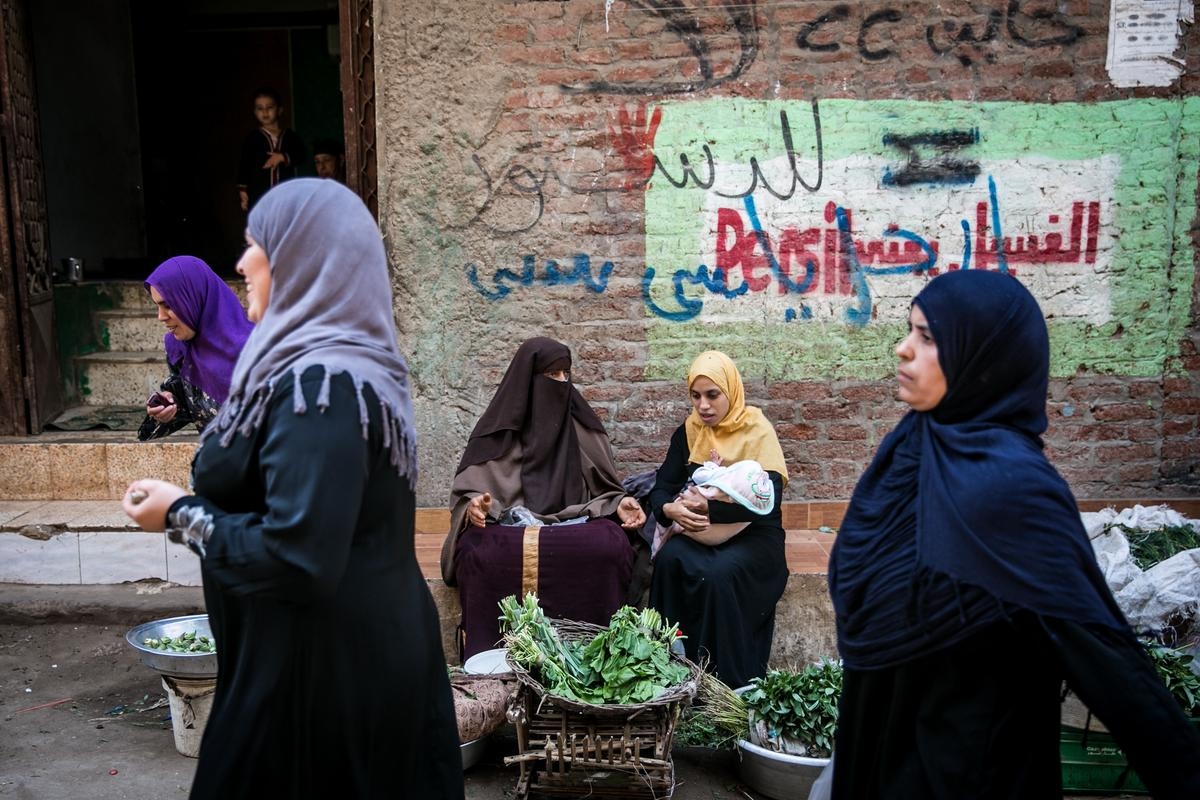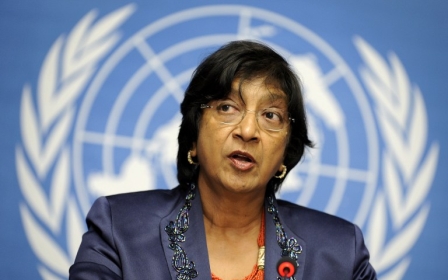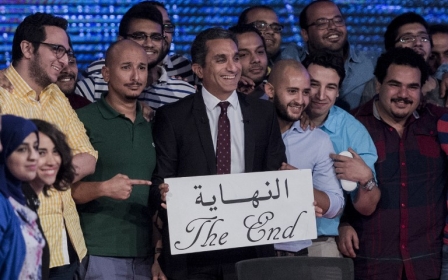Doctor on trial in Egypt's first FGM case

“Soheir was always crying. She cried for weeks, screaming that she did not want to be cut. She was imploring everyone not to do it,” said the grandmother of Soheir al Bata’a, a 13-year-old girl from Diyarb Buqtaris, about 100 kilometres north of Cairo, who died while undergoing female genital mutilation (FGM) surgery on 6 June, 2013.
More than a year later, Dr Raslan Fadl, who performed the mutilation in his private clinic, and Soheir’s father are standing trial in Egypt in the first FGM-related case since the practice was banned in 2008.
Female genital mutilation is an ancient circumcision practice, widespread in the Nile basin countries and in other parts of Africa, where a surgeon removes the clitoris or both the clitoris and labia minora. “I don’t cut it all so women can still feel something,” said a doctor in Luxor who wanted to remain anonymous.
Female genital mutilation is highly entrenched in tradition and culture, especially in rural communities, as it is associated with chastity and sexual moderation. It is believed that preventing the woman from feeling sexual pleasure will help her to control her desire and she will not commit adultery.
Dr Soleiman Gohar, a Cairo-based gynecologist, said: “If they cut your tongue you can’t swallow, but it will not stop you from feeling hungry or wanting food.”
Although it is a pre-Islamic practice carried on by conservative Egyptian Christian Copts and Muslims alike, it is often justified in religious terms and thought to be an Islamic practice.
“Saudi Arabia is supposed to be the most Islamic country in the world. Still, they do not carry out FGM operations there,” said Atef Abdelaty, a human rights lawyer working on Soheir’s case. “However, in rural villages in Egypt the doctors performing the surgery are also preachers at the local mosque, and they keep advocating it despite the lack of references in the Quran.”
The Grand Muftì of al Azhar, Egypt’s main Islamic authority, banned female circumcision.
“But there is also societal pressure to do it and false medical or traditional claims. A common belief is that the cutting helps to prevent other diseases, [and] makes the woman stronger as if you had to remove the tonsils”, Abdelaty said.
Young girls are forced to be cut by male and female members of their family.
Harbi Mahmoud, a 40-year-old father of a nine-year-old girl from Sohag, Upper Egypt, said: “Traveling to Saudi Arabia I realized that it could not be a religious practice and I refused to do it to my daughter. But my sister took her daughter to do it, and so did the grandmother of two other girls. Their father is a doctor and did not want to mutilate them, but the grandmother did it.”
Every year, around 3 million girls are cut, and across the world around 125 million women have undergone FGM. According to the 2008 Demographic Health Survey, the latest data available, 91% of Egyptian women aged between 15 and 49 have been cut. In a previous survey, in 1995, 97% of women had been circumcised.
In 2007, the death of two girls sparked an intense debate, and the following year the penal code for the first time explicitly forbade FGM operations.
“Young people are increasingly opposed to FGM and the numbers [being cut] are declining, but there is a lot of pressure from older generations” said Dr Vivian Fouad, a member of the National Population Council who has been fighting against FGM for more than 30 years.
Local NGOs, backed by international organizations who provide technical and financial support, travel throughout rural communities to raise awareness on the issue.
“You don’t need politicians talking, but doctors, psychologists, wives and husbands working on the ground and having a dialogue,” said Marta Agosti, a former UN Population Fund-UNICEF joint programme coordinator for the abandonment of FGM. “It affects rural areas and it is more widespread among low income and less-educated communities.”
“It is way less common in Cairo or in urban areas because people are more educated or, simply, because they cannot go to a public hospital and ask a doctor to do it,” Abdelaty said, “Still, people who have recently moved to Cairo to work will take their daughters back to their village and local doctors will do it.”
Although the practice was banned six years ago, Soheir’s is the first case to be taken to trial, even though "it is impossible to know how many girls have died following a FGM operation", said Reda el-Danbouki of the Women Centre for Guidance and Legal Awareness, an NGO based in the Nile Delta city of Mansoura, close to Soheir’s home town of Diyarb Buqtaris. "The law allows for the doctor and the family of the victim to find an agreement for ‘wrongful death’, avoiding an incrimination for genital mutilation.”
According to Danbouki, Dr Fadl approached Soheir’s father, allegedly offering 60,000 Egyptian pounds (US$8,000), to avoid an FGM trial. The first forensic report, written by a colleague of Fadl, said the cause of death was an allergic reaction to penicillin during the surgery, unrelated to the procedure.
Due to the awareness campaign launched by Danbouki’s NGO, a new forensic report was written and the case brought to court. In a previous hearing in September, a Health Ministry inspector testified certifying that Soheir died following the circumcision.
“Having the first sentence in an FGM related case will be a proof that mutilation is a crime and it is not approved by the state,” said Fouad of the National Population Council.
Even so, Abdelaty said: “The operation is illegal, but still really cheap. Doctors ask between $1 and $15 to do it because there is a high demand and a constant flow of cash. The economic aspect - it Is really important, and it can be stopped only by enforcing the law.”
DanboukI said that the law was also "not really harsh, and even if doctors are scared, they keep doing it.” According to him, even Fadl keeps performing mutilating operations in his own house, despite being under trial. “At the end of the school year and right before Ramadan is FGM season. There was a long queue of girls and parents in front of his house,” DanboukI said.
With a sentencing, Egypt could finally prove that it is serious about abandoning FGM. But it will hardly be enough without work in the field.
Soheir's grandmother asks: “What would I do if I could go back in time or bring Soheir back to life?" She has doubts when she replies: “It would be up to her mom to choose, but she would have to be cut. Here, every woman is.”
Middle East Eye propose une couverture et une analyse indépendantes et incomparables du Moyen-Orient, de l’Afrique du Nord et d’autres régions du monde. Pour en savoir plus sur la reprise de ce contenu et les frais qui s’appliquent, veuillez remplir ce formulaire [en anglais]. Pour en savoir plus sur MEE, cliquez ici [en anglais].




